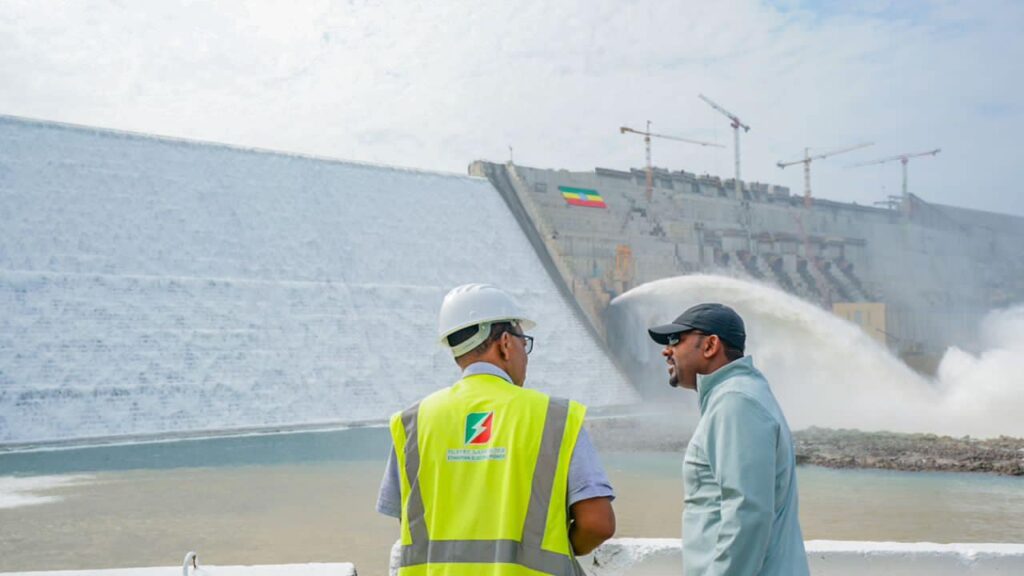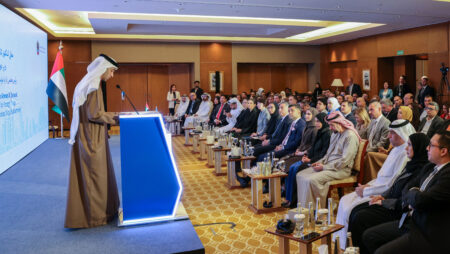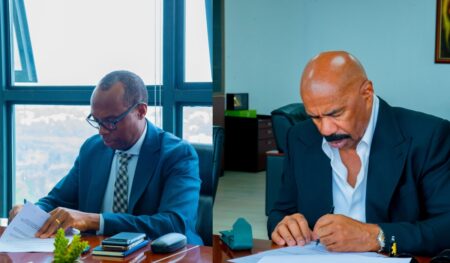- The latest round of talks on the Grand Ethiopian Renaissance Dam (GERD) has concluded in Addis Ababa without success.
- Egypt, heavily reliant on the Nile for its water supply, is blaming Ethiopia for rejecting proposals that safeguard the interests of the three nations involved.
- On its part, Ethiopia is accusing Egypt of “misrepresenting” its positions in the talks.
The latest round of Ethiopia-Egypt talks on the Grand Ethiopian Renaissance Dam (GERD) has concluded without success. The meeting, held in the Ethiopian capital Addis Ababa, failed to produce any tangible results, as Ethiopia remained steadfast in its refusal to accept technical or legal compromise solutions that would address the concerns of all three countries involved: Ethiopia, Sudan, and Egypt.
Egypt’s Irrigation Ministry reported the lack of progress, highlighting Ethiopia’s persistent rejection of proposals aimed at safeguarding the interests of the three nations.
Egypt, heavily reliant on the Nile for its water supply, has long opposed the GERD project due to fears about potential impacts on the security of its future water resources. Similarly, Sudan, another downstream country, has expressed concerns about the regulation and safety of its water supplies and dams.
“The meeting was unsuccessful due to Ethiopia’s persistent refusal … to accept any of the technical or legal compromise solutions that would safeguard the interests of all three countries,” Egypt noted in a statement.
Ethiopia, asserting its right to economic development, announced in September that it had completed the final phase of filling the 1.77 kilometer reservoir for a massive hydroelectric power plant at the GERD project on the Blue Nile. The first phase of filling the reservoir started in 2020. This announcement underscored the ongoing challenges and tensions among the three nations involved in the GERD negotiations.
The failure of the recent talks leaves the diplomatic and technical issues surrounding the dam unresolved, highlighting the need for compromises and continued dialogue to find a mutually acceptable resolution.
Given these Ethiopian positions, negotiations have come to an end, Egypt said, affirming that it will closely monitor the filling and operation of the dam and reserves the right, under international charters and accords, to defend its water and national security “in case of any harm.”
Ethiopia says Egypt is ‘misrepresenting’ its position on GERD project
In a strongly-worded statement, Ethiopia’s foreign ministry accused Egypt of “misrepresenting” its positions in the talks, further asserting that Egypt’s approach reflected a “colonial era mentality” and had created obstacles to achieving convergence.
This sharp rebuke from Ethiopia indicates a deepening divide in the ongoing negotiations over the GERD dam. In response to Ethiopia’s accusations, Egypt argued that Ethiopia was unwilling to compromise, escalating the verbal sparring between the two nations.
Ethiopia, however, maintained its commitment to achieving a negotiated settlement that addresses the interests of all three countries involved, expressing optimism for the resumption of negotiations. The exchange of statements underscores the challenges and deep-rooted differences that persist in the diplomatic discourse surrounding the GERD.
Throughout the years, Cairo asserts that the legal foundation for Nile water allocation lies in a 1959 agreement between Egypt and Sudan. However, authorities in Ethiopia and other upstream riparian states refute this claim.
The 1959 agreement distributed all of the Nile River’s waters to Egypt and Sudan, reserving 10 billion cubic meters for seepage and evaporation but providing no water allocation to Ethiopia or other upstream riparian states—despite being the primary sources of the water that feeds into the Nile.
Even more significant is the aspect that this 1959 colonial-era agreement bestowed veto power upon Egypt concerning any future projects related to the exploitation of the Nile River.
Amid the verbal skirmish, there has been a notable silence from Sudan, the third key player in the negotiations. The lack of comments from Sudan adds another layer of complexity to the situation, leaving the diplomatic landscape surrounding the GERD talks in a state of uncertainty.
These recent developments come on the heels of the last four rounds of negotiations, which took place after a break lasting over two years, following the breakdown of talks in April 2021. The impasse underscores the need for renewed efforts and effective diplomacy to bridge the gaps and find a mutually agreeable resolution to the GERD dispute.
Read also: GERD talks: Egypt, Ethiopia, and Sudan meet to define shared future
GERD holds immense promise for Ethiopia, while risks loom large for Egypt
The construction of the US$4 billion GERD since its commencement in 2011 has been a focal point in Ethiopia’s vision for economic transformation. With projections to generate up to 6,500MW of electricity, the dam holds the potential to double the annual national electricity output, marking a significant milestone for Ethiopia’s energy sector.
A key objective for Addis Ababa is to extend reliable power access to roughly 60 per cent of the population not yet connected to the grid, promising a substantial impact on the country’s economic landscape.
Sudan, Ethiopia’s neighbour and a nation heavily dependent on the Nile for two-thirds of its water supplies, initially criticized the dam’s construction due to concerns about potential impacts on annual flooding during the rainy season.
However, in recent years, Sudan appears to have shifted its position, seeing the potential benefits of the dam in regulating these floods. This change in perspective reflects the complex dynamics and evolving interests of countries in the region amid a shared resource.
In contrast, Egypt, another downstream neighbour along the Nile, has remained steadfast in its opposition to the GERD project. Expressing ongoing concerns that the dam on the Blue Nile, the main tributary of the River Nile, will drastically cut its water supply, Egypt has not altered its early stance of opposing the initiative.
With close to 97 per cent of Egypt’s nearly 110 million population living along the River Nile and relying on it for fresh water, GERD dam’s implications for water security are of paramount concern to authorities in Cairo.
Beyond the geopolitical and economic considerations, there is a deep emotional aspect at play in Egypt’s criticism of the project. The River Nile has historically been regarded as Egypt’s lifeline, woven into the cultural and societal fabric of the nation.
As the GERD dispute continues to unfold, it underscores the intricate web of interests, challenges, and historical connections that shape the complex relationships among the nations sharing the Nile waters.











